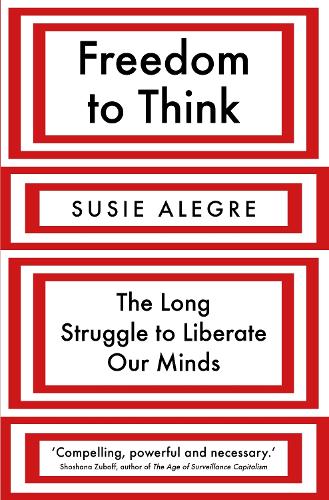All the books we have added to our ‘virtual library’ are wonderful but this reading recommendation is extra special.
Its author, Susie Alegre, is an international human rights lawyer, author and speaker and has a special importance for us here at the ODPA as in May 2022 we welcomed her as our first guest
Bijou Lecturer.
(There's more on
Project Bijou here.)
The first thing to say about the book is how authentic and accessible it is. Law is often complex and those that seek to communicate the arising issues can often have a hard time making a connection to non-lawyers. Susie does not have that problem. She has clearly made the decision to make it a deeply personal reflection of her own journey, from a young student to one of the top professionals in her field. This very human and authentic approach allows the reader to connect with the admittedly profound issues raised because they relate to real life, to real people, to a real person and in turn, to all of us.
Susie talks of the ‘light bulb’ moments she has experienced, when the scale, impact and consequences of our speeding into the digital, data-hungry era were brought into sharp focus. From hearing the headlines about Cambridge Analytica to smaller moments where we share our most private data with faceless tech companies, the scale of the impact on us all of data and the role it plays in influencing freedom of thought is breath-taking but we have become almost immune to it, accepting it as normal and inevitable.
This is a book about the way in which people with money and power can get into our minds not only to understand what we are feeling but to manipulate what we are feeling. For example, it’s not about knowing that you like a particular brand of juice, it is influencing us in order to make us like a particular brand of juice. We need to take a moment to reflect on that because it is profound and, of course, it’s not just about selling juice, it is about so much more. It is also the case that questions of freedom of thought and the manipulation of people take on a different meaning and importance against the backdrop of war that the world is now witness to.
Having a ‘light-bulb’ moment can be the catalyst for real change. When we suddenly realise the importance of something and its relevance for us and those we care about.
I spoke of one of my own such moments
in this article and know from personal experience how powerful they can be.
In the face of the extraordinary power of the big tech giants, it may seem an impossible task to aspire to a different trajectory – one that is built on human values and collective good. But I heard the incredible author Shoshana Zuboff in discussion with Susie recently and she said, in what felt like something of a rebuke to wider society “freedom of thought only matters when you have something to think”. We are all now faced with a choice –
we accept that someone else can and will think for us, or we can start to reclaim what should already be ours – free and independent thought.
Reading this book is a sobering reminder of how easy the former is if we are not alive to the dangers. It also gives us real world examples of how those dangers can play out.
“Your part may be big or small. But whether you are a technologist, a lawyer, a politician, a civil servant, an investor, a teacher, a concerned parent or a consumer of technology, you could make a difference for all our futures.”





 &
Indulge
&
Indulge